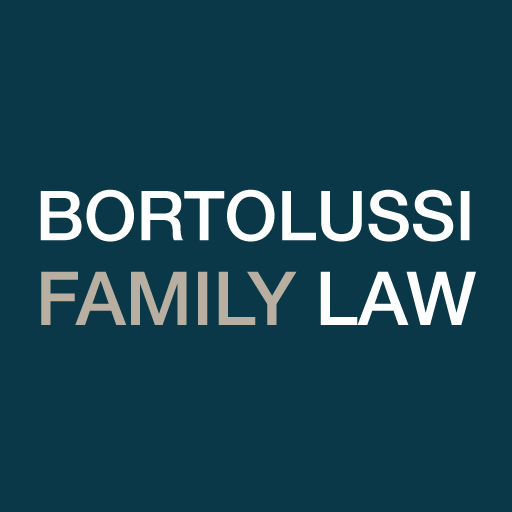Court Orders Parents To Try Mediation Before A Court Order

When making any parenting decision, the Divorce Act considers the best interests of the child as the most important factor. One of the amendments to the legislation that came into effect in 2021 further this goal is by encouraging parents to use family dispute resolution methods, including mediation, to resolve issues. Recently, an Ontario court used the modification to the Divorce Act to have the parents mediate their issues regarding their child’s education.
Parents Disagree Over Where Their Child Should Go To School
In Leinwand v Brown, the father brought a motion asking for the court to order the child of Mr. Leinwand and Ms. Brown to attend a public school for in-person learning and a Sunday Jewish religious school beginning in September of 2022. The mother responded by asking the court not to decide the issue but to order the use of a family dispute resolution allowing the parents to make the decision with the help of a mediator. However, if the court was going to decide, she then asked that the court order the child to remain at his current school, a private Jewish day school.
The two parents had previously mediated some of their issues resulting in an agreement on financial matters and a parenting schedule in May of 2019. There was no agreement about which parent had decision-making authority. Further, the agreement was to be reviewed in 2020, and then if the parents did not agree to the situation as it was then they would decide which dispute resolution process would be used. Both parents are Jewish and observe Jewish traditions. However, neither speaks Hebrew. Previously, the parents agreed that their child would attend his current school, Robins Hebrew Academy. The school was paid for by Ms. Brown’s mother and Mr. Leinwand was not asked to contribute financially.
Divorce Act Family Dispute Resolution Provisions
The Divorce Act amendments that were passed in 2019 and came into force in early 2021 encourage parents to settle their issues outside of court using a family dispute resolution process, like mediation. The Act’s definition of family dispute resolutions includes negotiation, mediation, collaborative law, and other processes outside of court used to settle family law disputes. The use of family dispute resolution processes is encouraged by the Act in three ways. One, s.7.3 creates a duty for the parties to an action under the Divorce Act to try and use a family dispute resolution process to settle their disagreements. Two, there is a duty for lawyers to encourage clients to settle their matters outside of the court system in s. 7.7(2)(a). Finally, there is the provision in s. 16.1(6) that allows a court to order the parties to settle contentions of parenting orders through a family dispute resolution process.
In Ontario, the Family Law Act already encouraged couples to use mediation by requiring parties to try and resolve the family law problems using an alternative dispute resolution process like negotiation, mediation, or collaborative law. It also has an obligation on lawyers to encourage clients to use a method outside of court.
What Are The Advantages Of Using Family Dispute Resolution Processes?
There are many advantages of using a family dispute resolution process. They are usually less confrontational than a court decision. Settling out of court will usually be less divisive and encourage parents to work together. The more parents can cooperate and communicate with one another, the better the child will be in the long term. The most important consideration of any decisions made regarding children is that it be in the best interests of the child.
With many types of family dispute resolution, the parties themselves are actively involved in the result of the agreement. Being actively involved can help both parties be more invested in following the agreement or in the event a change is needed, the parents may be able to negotiate with one another to find a revised settlement. Family dispute resolution processes are often cheaper and faster than going through the court system. Each type of dispute resolution process is also able to be customized to the parties using it. For example, mediation may occur with all parties in the room, or the parties may be in separate rooms and the mediator will shuffle between them. The options outside of court also provide parents with more opportunities to customize the agreement to their family’s specific needs as long as any decision is made in the child’s best interests.
Court Ordered The Parents To Use Mediation To Settle The Issue
The court found that despite Mr. Leinward having concerns about Ms. Brown’s parenting abilities, the parents have previously been able to settle issues regarding their child, including the parenting schedule. The court went on to add that the parents had indicated they would choose a dispute resolution process if they did not agree after the review but did not explicitly indicate court as the first option. The court also noted that the recent changes to the Divorce Act encourage the parents to try less confrontational methods to settle their issues before resorting to asking the court to make decisions. Since there is no urgency to decide the child’s schooling for the next year, the parents should try a less divisive option, like mediation, before asking the court to decide. It was further explained that if the parents could settle the issue on their own, it would be beneficial for the child to see his parents cooperating with one another. Therefore, the court ordered the parties to use a mediator to help create a comprehensive parenting plan regarding the child under s. 16.1(6) of the Divorce Act.
Contact Vaughan Family Mediation Lawyers and Mediators
At Bortolussi Family Law all of our lawyers represent clients in family law mediations. We are focused on delivering quality and clarity to all our clients. We can advise and guide you through family dispute resolution processes. We are located in Vaughan but help clients all across the Greater Toronto Region. Contact Bortolussi Family Law at 416-987-3300 or online to arrange for a consultation on your family law case.





